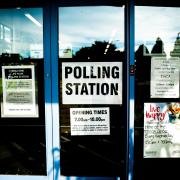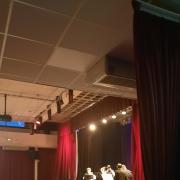
On the 12th of December, The Training Partnership hosted a Sociology In Action enrichment programme at the Emmanuel Centre in London. It was chaired by Dr Marian Duggan from the University of Kent and had various speakers talk about big questions in various sociology topics and gave their thought-provoking and inspiring viewpoints on them.
The first speaker at the event was Professor Beverley Skeggs, from the London School of Economics, who talked about ‘Stratification By Stealth’ and specifically ‘How Digital Sites Classify And Sell Your Data Without You Knowing’. She gave a very insightful talk about how technology has developed, being created into a sort of surveillance used by big companies, like Facebook, and the government to track our data. What is our data being used for? According to Skeggs, our data is mainly used for trading where our data is sold to various companies to make a profit. These companies will then use your data to make a personal profile about you in order to make tailored advertisements. Skeggs also talked about research projects she has done around the topic. With the help of computer scientists, she was able to see the extent data is tracked and sold. In short, it was a lot. The data tracked and sold was so much that it covered more than the room floor Skeggs was studying it in. She then went on to say how this linked to our social connections and how companies, like Facebook, monetise our social relationships and reconfigures the value/s of friendship. Overall, Skeggs really gave a thought-provoking perspective about technology and how our data is used, making many think twice about their digital usage.
The next speaker was Tom Shakespeare, a Professor of Disability Research at the Norwich Medical School, UEA. He focused his talk around the question ‘What's so sociological about disability?’ and how disability has not been a well talked about topic in Sociology until recently. Shakespeare himself is disabled and firstly defined the term ‘disabled’ as ‘anything that made us different from the norm’. This is not just physically but can be mentally as well. He then goes on about how disability was not something sociologists addressed until the 1970s. To some this may seem like a long time ago but it is not, considering that class and gender were addressed nearly 30 years or more before the 1970s. Moreover, Shakespeare talked about the different sociological views about disability and his take on it. One key point he made was how a disability was not a bad trait about someone, it should not be viewed as a bad trait at all but it is. Due to disbaled people being different, they are segregated from the rest of society. Shakespeare says that needs to change. People’s views on disability need to change so that there is more equality for people like him within society. Shakespeare’s talk was definitely an eye opener and a favourite amongst the students who attended.
Another speaker there was Dr Alice Bradbury from the UCL Institute of Education. She specifically talked about the education policy and social inequalities. She gave the event attendees an insight of how social inequalities with class and ethnicity can affect a person’s educational performance. From her research she found that there was a high percentage of people of Chinese ethnicity that performed better in school academically at GCSEs and A-levels compared to people of a Black Caribbean ethnicity who had one of the lowest percentages. Bradbury then went on to say how education policies can affect children’s academic performance as well. These policies are based on accountability which encourages schools to focus on results. This may be the reason why there is such a pressure on students to do well and how a gap can be created between high achieving students and low achieving students. This was an insightful talk for the students attending the event as some may not realise the extent of inequality within the educational system they are in.
The next speaker was Dr Craig Webber from the University of Southampton who talked about the topic of criminology and ‘Why Offender Profiling (as you know it) is dead’. He started with making people understand what Predictive Policing is and how this helps create an offender profile. Webber then diverted his talk to what criminology, as a subject, is and what it entails for people wanting to do the subject. The professor than ended his talk briefly about how offender profiling was too broad to be used nowadays. Although the talk seemed shorter, it did give students an insight on the topic of criminology and how it applies to the real world.
The last speaker, but definitely one of the most awaited, was Germaine Greer. The 80 year old professor focused on her talk on how ‘Equality Is Not Enough!’ Greer gave various examples to back up her point on the topic. One was sex-selective abortion where, according to her, males were always perfered to females due to their biological factors. She then justified her other examples about the gender pay gap and women in the military. These examples, especially the last, received many reactions from the younger audience. Greer’s views was definitely not one that the students could relate to and the speaker received many questions regarding it. This talk was definitely a more thought-provoking talk compared to the others.
Sociology is a very interesting subject and explores a wide variety of topics within it which can really open your eyes to the world. It is a great subject to take at A-levels and at University. Hopefully this article has helped you want to take a further step into sociology and want to explore more.
Written by
Francesca Bernardez
St Philomena’s Catholic High School For Girls



























